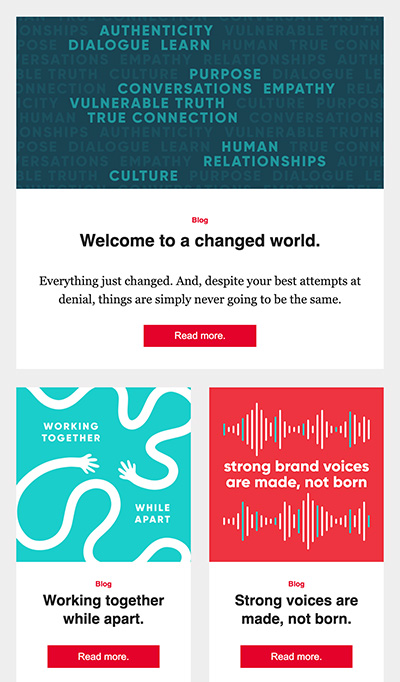My Last Good Idea.
Any creative will tell you that imposter syndrome is a familiar foe. But what happens when you defeat that foe? The truth is, it’s a fleeting experience that doesn’t always feel positive.

Our team regularly holds “Culture Connect” meetings. These conversations offer a moment away from work to reconnect with our culture, discuss personal growth strategies, and take a general temperature check of the agency.
Self-confidence was a recent theme that resonated with everyone — especially among those willing to discuss their experience with imposter syndrome. Imposter syndrome is the “self-doubt of intellect, skills, or accomplishments among high-achieving individuals.”
You’re probably annoyed that I included the obvious definition of a well-known, widely discussed concept. But that’s an official definition from the National Center for Biotechnology Information, and it contains an important phrase often overlooked in conversations about the topic.
The important phrase is “high-achieving individuals.” As some might believe, imposter syndrome does not describe a team member who is uncertain about their career path or who will eventually succeed in their role. If you experience imposter syndrome, by definition, you are simply a “high-achieving individual” with a complex nervous system. Imposter syndrome is your brain’s twisted idea of a compliment!
In other words, you can only experience imposter syndrome by also experiencing prior achievements in your career. And that’s why it came up at our Culture Connect — because everyone at Phire Group is a high-achieving individual who cares about upholding a standard of excellence.
Uh oh. I did a good job.
So what happens when you don’t feel like an imposter? Like when your campaign concept just works? Or when a client loves the first tagline you present? For me, it’s a momentary feeling of satisfaction. And then existential dread sets in.
“What if that was my last good idea?”
It’s the question that occasionally crosses my mind after a creative win. For the longest time, I distanced myself from the fear, the anxiety, and the uncertainty of not being able to replicate my previous success. But now, armed with a better understanding of imposter syndrome, I have learned to embrace those seemingly self-destructive feelings.
The definition of imposter syndrome gives me comfort. I cannot have imposter syndrome without a track record of high-achieving moments — and I cannot be a high-achieving creative without maintaining that track record in the future.
Of course, there will be low points. There will be losses and missteps. But always trust that your overall trend of professional growth will be positive and fulfilling.
The next time you experience a win at work, consider this advice. Relish the moment and spend some time on top of the world. Then come back down with a renewed perspective. The air is thin up there and not suitable for a high-achieving individual like yourself.

